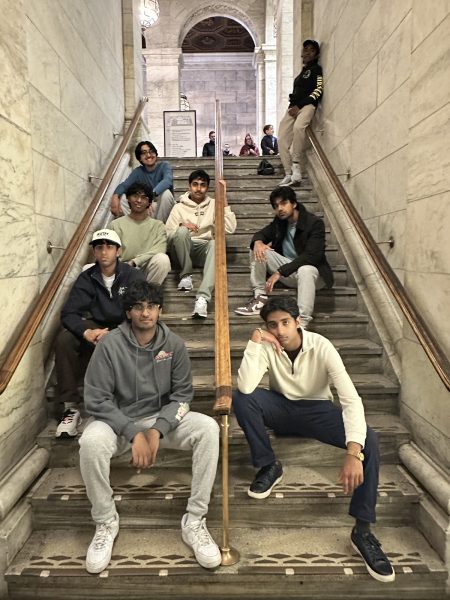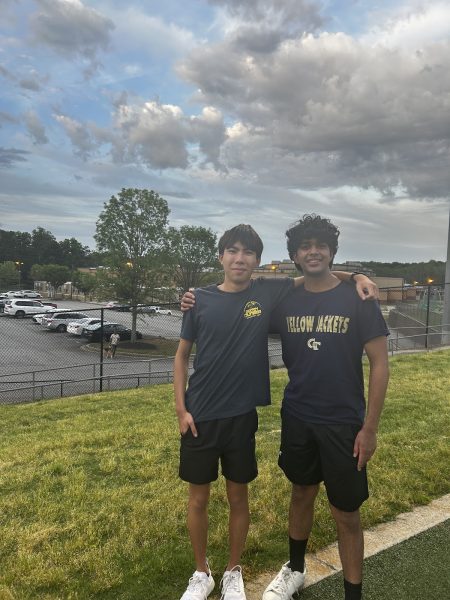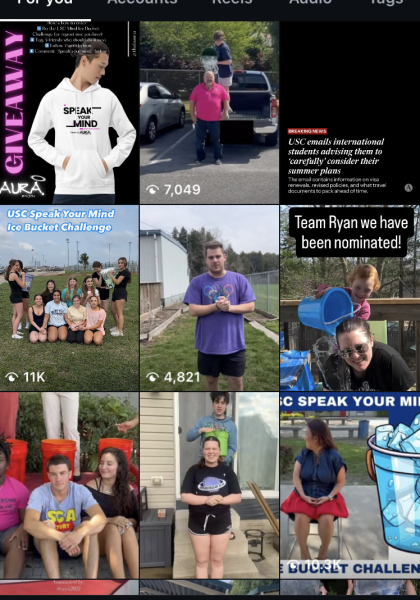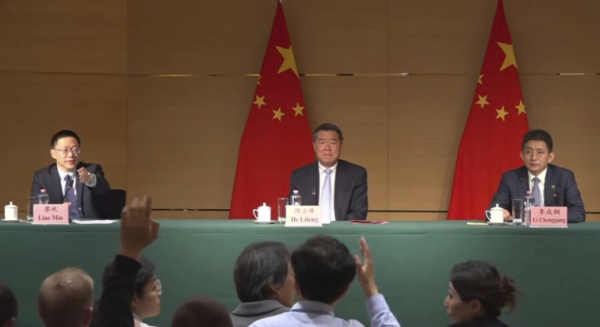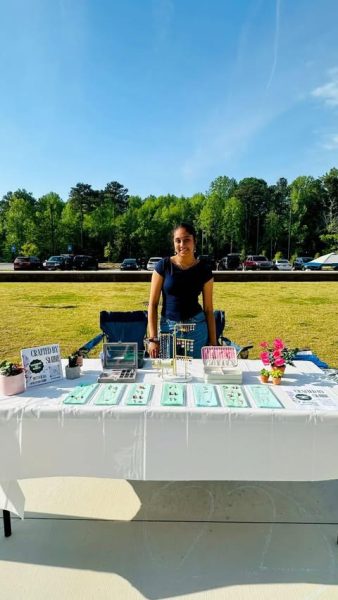High School Needs More Field Trips

Lambert’s Model United Nations club poses for a photo at Georgia State University, enjoying a field trip. Photograph taken by Lauren Watkins on March 9, 2023
When students look back upon their earlier years in school, there’s one type of event that always stands out – field trips. Field trips, such as those to museums or the zoo, are usually a highlight of our elementary school years. Back then, they weren’t they weren’t just a fun time with classmates, but also an opportunity to learn firsthand about the world outside of the classroom. Whether it was learning about marine ecosystems at the aquarium, visiting a state Civil War museum or exploring the planetarium, these field trips provided us a chance to visualize classroom lessons in the real world.
However, as we moved into middle and high school, field trips became far less frequent. For most, they’re only found in the occasional club competitions or regional conferences.
A lot of students may not even know that individual classes at Lambert can take field trips in the first place. However, it doesn’t have to be this way. Field trips still offer the same, if not greater, benefits that they did back in elementary school and including them within the curriculum can not only bolster academic achievement but also provide a much-needed break for students.
To start, let’s talk about the scholastic benefits. A study by Brigham Young University found that students who regularly attended curriculum-centric field trips received higher test scores and course grades on average. The students were also found to have fewer absences and disciplinary interactions. In short, field trips lead to smarter and more responsible students.
Field trips also help students better grasp the concepts they learn about in the classroom. Research in the past decade surrounding learning styles has revealed that not every student adapts well to the traditional presentation and notes format found in most public education. Field trips allow for students to grasp information through many different formats, meaning students can better grasp the information shown to them. For example, a visual learner might benefit from looking at a historical diorama and an auditory learner might be served well by the sounds at an aquarium.
Another benefit is that field trips also provide a much-needed break for many students. Despite weekends and breaks, school can become quite monotonous. Field trips provide students an opportunity to relax while learning.
Recently, the Model United Nations club at Lambert had such an opportunity when they took a field trip to Georgia State University for a conference. Club president Amaar Alidina revealed how the trip provided an educational experience while still being fun. He also encouraged more such trips.
“I definitely think we should have more field trips,” Amaar Alidina said. “It gives the opportunity for out-of-classroom experiential learning that you can’t really take advantage of in a normal school setting.”
He also talked about one of the biggest logistical issues when it comes to field trips – making up missing work. As a field trip requires absences from certain classes, concerns arise regarding whether students with packed schedules can afford such breaks. Though, in his experience, it wasn’t much of an issue.
“All the stuff I needed was posted on itslearning and didn’t have a tough time checking back in on what I missed,” Amaae said.
As classes use online platforms to their fullest potential, it becomes far easier for students to catch up on missed work. This, in turn, means that field trips become far more feasible. If students can manage their missed work, there’s no real downside to taking field trips.
With benefits to academic achievement and practically no drawbacks for missed work, field trips should be an essential part of high school classes. Teachers should seriously consider exploring field trips that relate to their curriculum. If students can learn about a topic through a field trip, they’ll do it far more effectively than regular learning.
While it isn’t practical to take field trips every month, one or two a year could greatly enrich students’ high school experience. Resulting in both increased academic success and student mental health, field trips are effective tools on the path towards better education.
Your donation will help support The Lambert Post, Lambert High Schools student-run newspaper! Your contribution will allow us to purchase equipment and cover website hosting costs.



